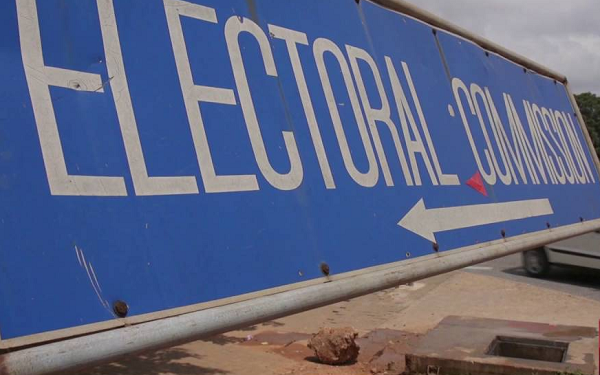The Electoral Commission is facing another legal challenge to its move to exclude the existing voter ID from the list of valid documents needed to register to vote.
The plaintiff in this latest case, Mark Takyi-Banson, is also challenging the exclusion of the birth certificate.
On June 9, Parliament voted to allow the EC to use the Ghana Card and Passports as the only forms of identification for persons registering to vote after relevant Constitutional Instrument had matured.
The EC presented the Public Election (Amendment) Regulation, 2020 (C.I. 126) to Parliament to amend C.I. 91 in order to change the current identification requirements.
But Mr. Takyi-Banson is now seeking an order directing that C.I.126 “violates the provisions of article 42 and 45 of the 1992 constitution to the extent that it excludes Birth Certificates issued to Ghanaians as a mode of identification and establishing qualification to be registered in the register of voters.”
He is also seeking similar relief for the old voter ID.
Mr. Takyi-Banson is also seeking “a declaration that the Electoral Commission’s decision to compile a new register of voters is inconsistent with and a violation of article 45(a) of the 1992 constitution of the Republic of Ghana.”
The National Democratic Congress (NDC) is currently also challenging the Electoral Commission in court on the exclusion of the old voters’ ID.
The NDC fears this amendment will lead to many Ghanaians being disenfranchised.
The opposition party’s case will be settled on June 23 ahead of the compilation of the register on June 30.
EC’s justification
The Electoral Commission submitted its legal justification for the amendment and described the old voter ID as “a fruit from a poisoned tree” and a breach of Article 42 of the constitution, which defines who is qualified to register to vote.
The EC cited the court’s judgement in the Abu Ramadan case, where it indicated that the use of the National Health Insurance Card to register a voter is inconsistent with Article 42 of the constitution and therefore void.
In line with the judgement in the Abu Ramadan case, over 56,000 names registered with the National Health Insurance Scheme (NHIS) cards were deleted.
Source: citinewsroom


Comments are closed.